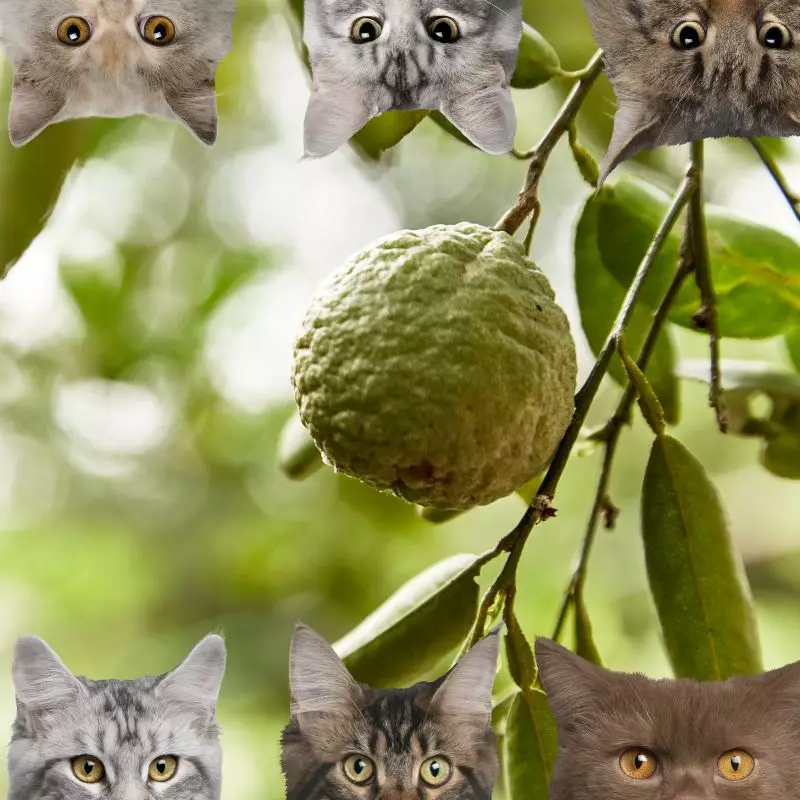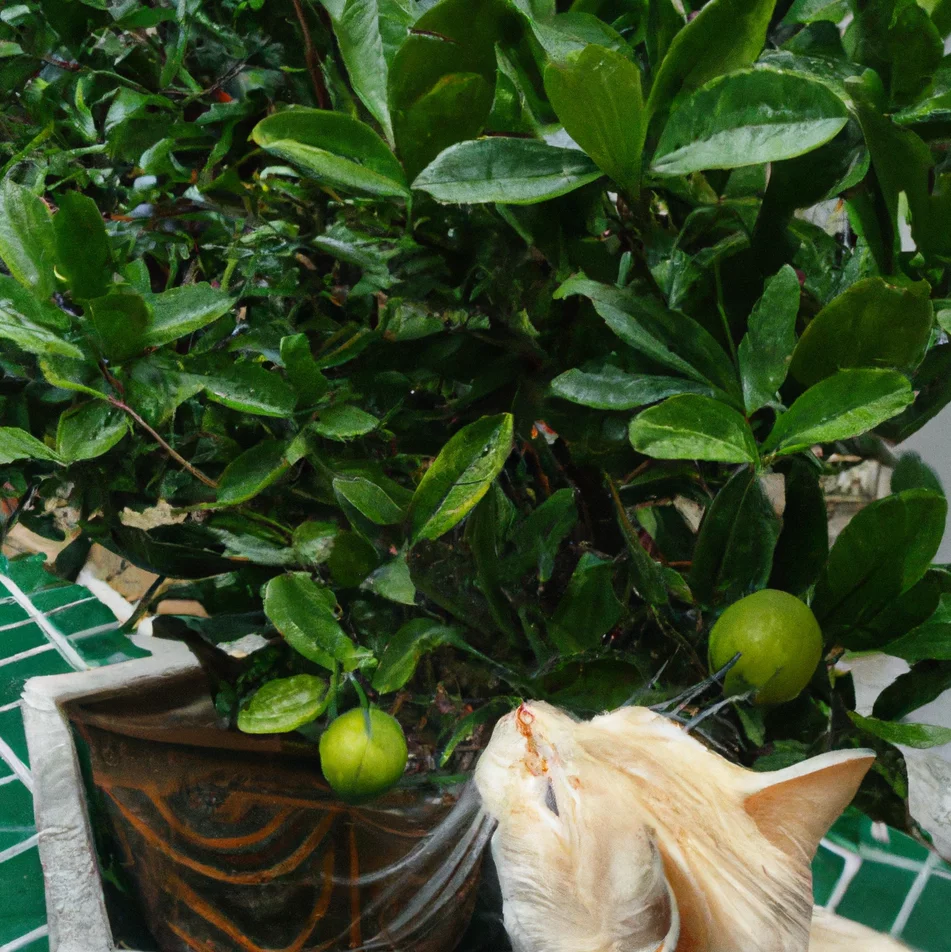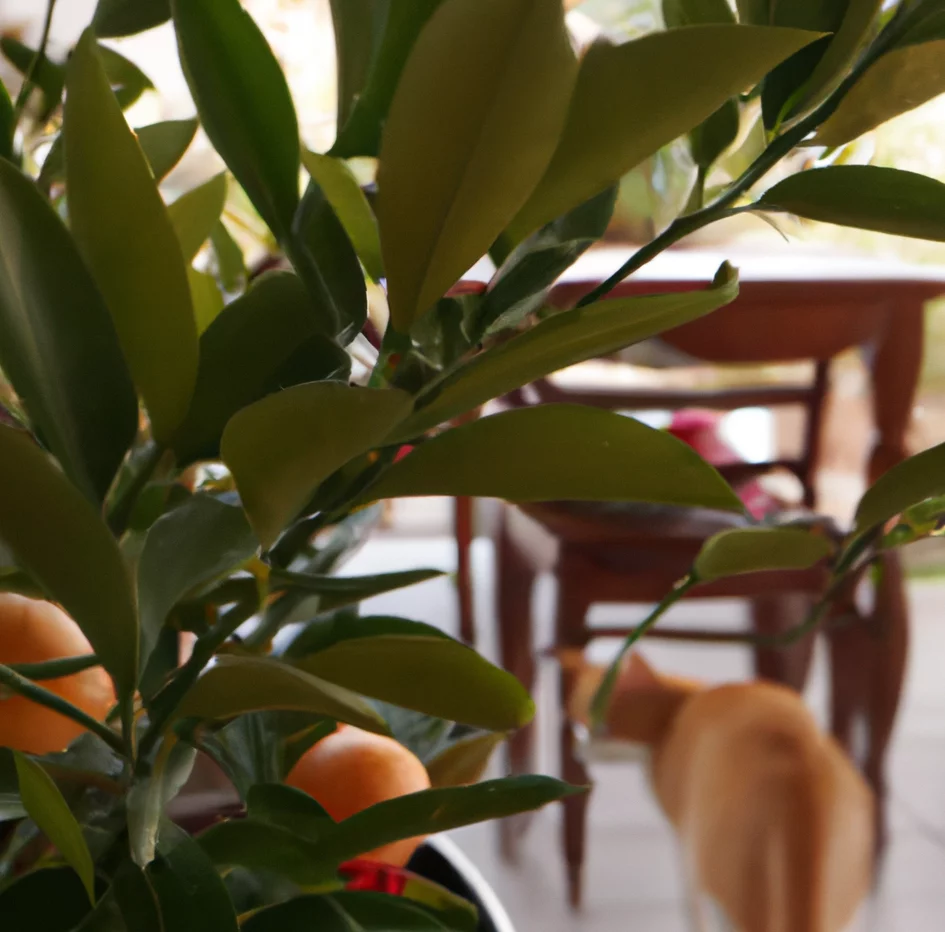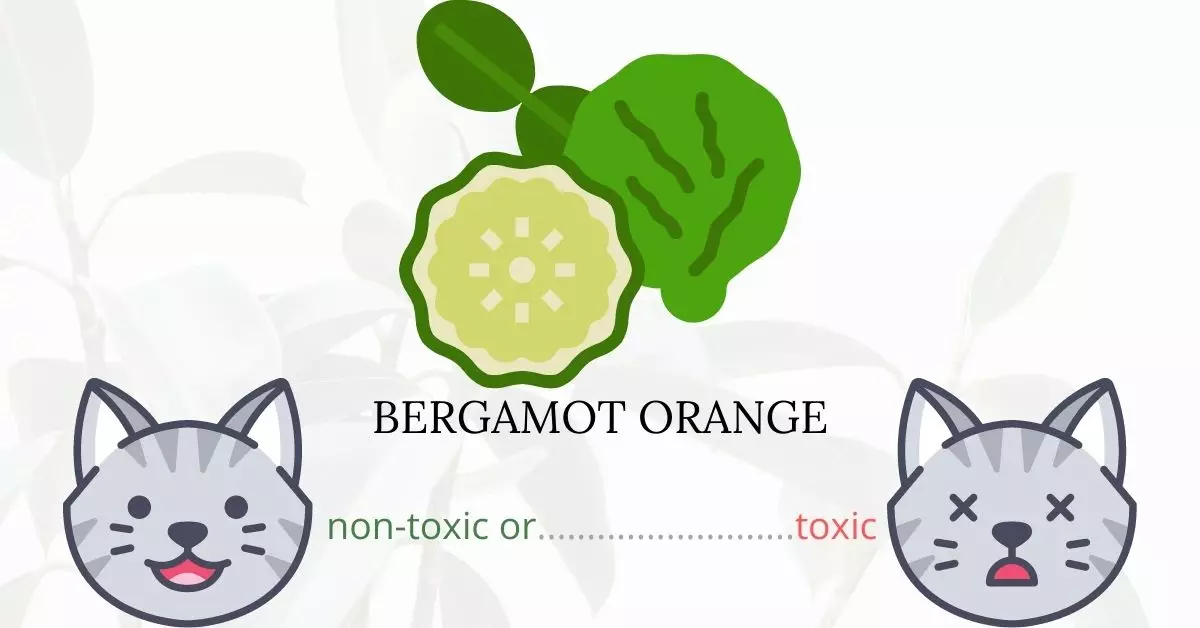The Bergamot Orange, alternatively known as Bergamot, Citrus Bergamia, Bitter Orange, Sevilla Orange, and Sour Orange, indeed harbors substances harmful to cats, namely psoralen and essential oils. In essence, these components are toxic, with the potential to induce a range of adverse symptoms in felines, including skin reactions and disruptions in normal biological activities.
This article is the product of collaborative efforts with a group of seasoned Doctors of Veterinary Medicine (DVMs), whose invaluable insights and expertise enable us to offer precise and contemporary information regarding the possible dangers posed by various plants, specifically Bergamot Orange, to cats. Through meticulous research and consultation, including extensive reviews of high-authority websites like ASPCA and PetMD, we strive to furnish our readers with reliable knowledge on every plant discussed.
Psoralen interacts with direct sunlight, absorbing its energy when it shines on the skin. When ingested by a cat, it triggers a chemical reaction that results in rashes and blisters, which are distinctive signs of citrus fruit poisoning. Essential oils, in contrast, act as neurotoxins, compromising the nervous system’s ability to effectively oversee biological activities. Exposure to these oils can manifest in symptoms such as increased lethargy, vomiting, and diarrhea in cats.
Clinical Signs of Bergamot Orange Poisoning in Cats

Should your cat come into contact with, or consume, any part of the Bergamot Orange plant, it is paramount to consult with a veterinarian promptly. Here’s a breakdown of the symptoms of Bergamot Orange poisoning in cats, and the underlying reasons for their occurrence:
- Lethargy: Caused by the neurotoxic properties of the essential oils found in Bergamot Orange. These oils interfere with the nervous system’s ability to regulate biological activities efficiently, leading to decreased energy levels and general inactivity in affected cats.
- Diarrhea: A gastrointestinal reaction triggered by the ingestion of the plant. This may result from the body’s attempt to expel the harmful toxins present in the Bergamot Orange.
- Vomiting: Another defense mechanism of the feline body in response to the consumption of toxic substances. It’s an effort to remove the ingested plant material and associated toxins from the stomach.
- Photosensitivity: Induced by psoralen, a compound found in Bergamot Orange. When a cat consumes this substance and is subsequently exposed to direct sunlight, the psoralen absorbs the sunlight’s energy. This reaction makes the skin more sensitive to light, potentially leading to rashes, blisters, and other skin reactions that resemble sunburn.
Always prioritize your pet’s safety and monitor them for any unusual behavior if you suspect they have encountered potentially harmful plants.
First Aid and Treatment of Bergamot Orange Poisoning in Cats

Fluid replacement therapy is essential in the treatment of Bergamot Orange poisoning since it helps to replace the liquids lost due to vomiting and diarrhea. It will also help to avoid dehydration. Additionally, it will also help flush the psoralen and essential oils out of the cat’s system. This will immediately reduce photosensitivity and should quickly increase the cat’s energy levels.
After receiving appropriate treatment and medication, your cat’s vomiting and diarrhea will subside; but, your cat’s digestive tract will most likely be sensitive for a while after the poisoning, so he or she may continue to vomit after eating.
Recovery from Bergamot Orange Poisoning in Cats

Bergamot Orange poisoning symptoms are usually mild so your cat will recover most likely in a week. Because your cat’s stomach has become more sensitive as a result of the poisoning, your vet may require to offer the cat a liquid diet, which is significantly easier to digest. Make sure to give your cat an ample supply of fluids to continue washing away any toxin residue from his or her stomach. Keep your home quiet and comfortable for your cat as he or she is recuperating.
Prevention of Bergamot Orange Poisoning in Cats
If you have Bergamot Orange at home or any citrus fruit, keep them away from your cat’s reach. Keep your cat busy and comfortable inside your home. Make sure that your cat does not wander far from your house or to areas where Bergamot Oranges are grown.
If you love plants but have cats at home, check out these lists:





